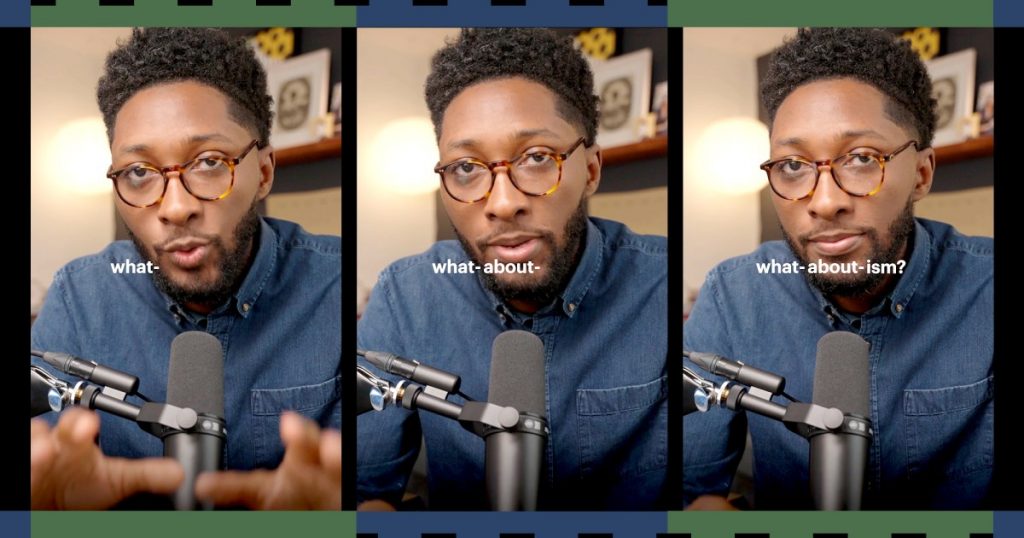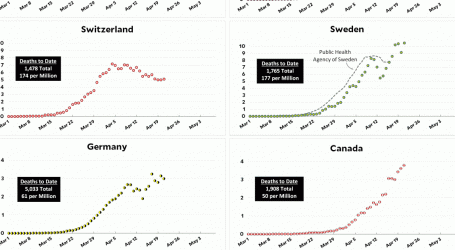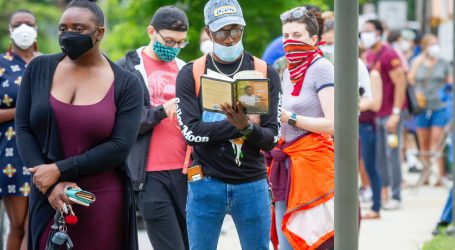Stop Messaging Me, a Black Journalist, About White Irish “Slaves”
Mother Jones illustration
Fight disinformation: Sign up for the free Mother Jones Daily newsletter and follow the news that matters.I create videos about race and history for a living, which results in being inundated with racist comments, dog-whistles, instances of historical revisionism or apologia, and other stupid stuff.
Every time I broach the subject of slavery, for example, there it is, the inevitable comment: “What about the Irish slaves in America?” Often, it feels like an attempt to divert attention, to steer viewers away from the pressing issues surrounding Black subjugation. But, I thought, why not tackle this exact question directly?
To get answers, I turned to an authority on the subject: Dr. Nell Irvin Painter, a distinguished history professor from Princeton University and the author of numerous books on race and history, including The History of White People.
During our recent video interview, Painter said, “Well, that’s wrong.” While unfree white people did indeed exist in the indentured economy of the early colonies, she explains, “their unfreedom had a term limit.” The permanent servitude we associate with the term “slavery”—chattel slavery—”did not include people we now consider white.”
Below, you’ll find our extended interview, edited for length and clarity, as well as the video capturing our in-depth conversation about this topic and so much more, including the fluidity and historical contexts of racial identities in general, the cyclical nature of historical erasure in American education, and even Dr. Painter’s perspective on the capitalization of Black and “White.”
I encountered your work through the book, The History of White People. My first question for you is, “What is whiteness”?
What whiteness is depends on when you ask, who you’re talking to, and where. Whiteness, like other identities, change. Whiteness changes with the time and the place and everything around it.
This goes for Blackness and Brownness: These are ideologies. And in that belief system there is a core that says, “this is physical, this is biological, this is unchanging, and this links you to the people that I say it links you to.”
I want to separate the ideology of race from the physical and material and psychological consequences of racism. Racism costs people money, time, mental health, places to live, places to go safely. And in the 19th, 18th, and 17th centuries, it costed people freedom. So racism is not the same as race. Race is ideology, racism is material.
What were—I don’t even know what to call them—lighter skinned people, European people, called before they were “white”?
They belonged to a king, or a warlord, or a place, or the territory. Was it high? Was it low? Mountainous? Was it rainy? Or also religion. Religion is a really big way of othering people.
Herodotus, the father of history, talked about people who lived in boggy places as having kind of boggy bellies—they didn’t move around. He thought the Greeks were wonderful people, who lived in mountainous territory, and they were very energetic and smart.
We can think of this kind of association of place with people’s identity when we think about north and south in the United States. Alexis de Tocqueville thought that Americans in the free states were energetic and enterprising, what we would think of as good little capitalists. But the people in the slave states—again, we’re talking about white men—were touchy, and they were flighty, and they were prone to violence.
Are there any ethnic or cultural traditions that have survived from before white people became “white people”?
Yes. Religion. Religion is longstanding, dangerous, but it nourishes many people. But that is the classic way that people decided who was them and who was other people. And remember, the Europeans had a 30-years’ war, and it was all about different kinds of Christianity.
Could you say more about white identity and the founding ideas of white identity and what it means to be white?
When I started working on The History of White People 20 years ago, the term Caucasian for white people was current. It wasn’t an everyday word, but people used Caucasian when they wanted to talk about white people in a kind of serious scientific way. And to call white people “white” was an insult, because naming white was like saying white nationalists and Klansmen.
White now is used in regular conversation. And it was okay to use Black because Black people had race, but white people didn’t have race. White people were individuals. They had their ethnicity, they had their homelands, they had their neighborhoods, but they didn’t have race.
I’m always looking for the smoking gun: Is there a point in history where we see the wide acceptance of white identity? Even if it wasn’t in name, this idea of pan-European white identity?
Yes. The second world war. In the 19th century, in Ralph Waldo Emerson’s 19th century, there was the Saxon race, to which he thought he belonged, or Teutonic race. And there was the Celtic race, which was Irish people, who were very downtrodden in the United States in the 19th century. And then at the turn of the 20th century, new immigrants from southern and eastern Europe were recognized as white. But in science, they were recognized as the northern Italian race, or the Southern Italian race, or the Slavic race, or the Jewish race.
But with the Second World War, we had a greater need for national unity. And looking back at the Nazis and saying, “No, wait, there’s not a whole bunch of white races. There’s just one white race and there’s one Black race, which is negro, and there’s one Asian race, was a Mongoloid. There are only three real races.” So, we looked to the 1940s for one big white race.
That wasn’t enough. So in the 1970s, we get ethnicity. You could be proud of being Irish, you could be proud of being Italian, and you could be proud of being Greek, but that wasn’t a race. Only Black people had race.
I make content related to race on the internet. Inevitably someone in my comments will admonish me for failing to properly acknowledge that Irish people were slaves in America before Black people were slaves.
Well, that’s wrong.
Let’s get to the bottom of that.
Irish people—and vulnerable English people, Scottish people, Welsh people, poor people, people considered criminals, or orphans—were often shipped outside of the British Isles to places like what became the United States, and what later became Australia and New Zealand, as indentured workers. There were lots and lots of unfree white people. But their unfreedom had a term limit. If you survived your indenture—and many, many, many people did not survive—then you could become a free person.
So yes, many early North American white people were unfree, but they were not enslaved for life. It took the North American colonies several decades to go to permanent enslavement. It didn’t happen overnight. The people whom warlords had rounded up in places like what is now Angola and sold to Europeans, it was their descendants who became permanently enslaved. So by the end of the 17th century, what we recognize as permanent servitude, that chattel slavery, was in place. And it did not include people we now consider white.
Our understanding of pan-European white identity has some of its origins in the slave trade and making a differentiation between white—those who are not enslaved for life, though could be indentured—and Black, those who are enslaved for life.
But again, we’re talking about place too. Because in Boston, for instance, Emerson’s Boston of the middle of the 19th century, people were not so much in the thrall of dealing with Blackness and oppressing Blackness, so they could oppress the Celtic race, for instance. But in the south, that line between slavery and freedom in the 18th century was very sharp and permanent.
How do we understand Black identity in contrast or in relationship to white identity?
When I was a young person in the 20th century, there was just one kind of white people and one kind of Black people. My family was from Texas and Louisiana, and we were Black people. In the 20th century, until the very, very end, the overwhelming proportion of people considered Black or negro or colored were American-born and of American-born grandparents.
Today, you can’t talk about Black people in this monolithic way because so many people are either immigrants or the children of immigrants or the grandchildren of immigrants. I remember talking to my students at Princeton about identity and Black identity. Everybody said, “Yeah, yeah. We’re African Americans.”
And I said, “Well, how many of you have parents or grandparents who were born outside of the United States?” And a whole bunch of people raised their hands. “How many of you are yourselves immigrants?” And some people raised their hands. I said, “Well, what do you call yourself?”
I think there is a growing conversation in some circles around who, to this day, gets to identify as African American and the ADOS (American Descendants of Slavery) community. What are your thoughts on terms like ADOS?
It’s not up to me. If that’s what they want to call themselves, call themselves that. We live in a big country. Our culture is on various levels and various places. And as long as people can convince other people to use their name, that’s their name.
I remember, I was brought up as a capital N Negro. So for me, Negro is not a bad word, as long as you capitalize it. And I remember when Black became popular, I used Black. And I remember when I capitalized Black and then the uncapitalized Black. I remember being caught up talking about Black people when somebody in an audience said, “No, no, that’s not the right term. The right term is African Americans.” Okay. But I use Black because it’s a general word that can include African Americans and Caribbean African Americans and half-African Americans. It is just a good, vague, general word.
Yeah, there is something very nice about the vagueness of Black that is inclusive in a way.
Now I capitalize Black, but I also capitalize white.
Why is that?
I capitalize white to remind people that white is a forged identity, as contingent as Black. We’ve been talking about the contingencies within Black, and we’ve also been talking about the contingencies within white. Neither group is scientific, neither group is solid. Both groups are full of different kinds of people who would probably stab each other in the back. Both groups have really dumb brothers-in-law. Neither group is homogeneous. But we know what we mean when we use those words.
Black people, we have had our community, our groupness imposed on us from the outside, as well as embracing it from the inside. It’s embracing it from the inside gives you a kind source of understanding yourself in the world, a source of support. It means that when you do stupid things, it’s not just your fault. So there’s a lot to be said for Blackness from inside and from outside. Whereas white people, who think of themselves as just individuals, are thrown out in the world by themselves. So it’s a much more dangerous position to be in. But I think that the idea of individualistic Americans or white people is an identity forged against the communal identity of Black people.
Maybe I’m talking like a socialist here, but I think solidarity is a very good thing. And I wish more Americans had a sense of solidarity.
Do you anticipate a continued broadening of who is able to identify as white today as happened in the past?
People often ask me, “Will we ever get rid of race?” No, because it’s foundational to American identity and American politics and American society and culture. But if we ever do, what will replace it will be terrible, like religion, as a way of othering and killing other people, and colorism. So that it’ll be less what your race is and more what color you are.
And so, lighter skinned people will be better off in the world than darker skinned people. And when you add class to that and you make lighter skinned richer people and darker skinned poor people, then you have something that is not the same as Black, white race, but that is an evolution of it.
We’re having a national conversation about history these days and the role that history is to play. We’re seeing an incredible attack on history across the country, but notably in places like Texas and Florida come to mind.
It’s incredible, and it’s happened before. In the 1950s, in the Cold War, the Lavender Scare: Anti-gay and lesbian, anti-communist, people lost their jobs and their livelihoods because they had been targeted as communists or more fellow travelers.
And then, I remember, my friends would go around tearing their hair out saying, “We’re going to have a civil war, we’re going to have a civil war.” And I said, “Well, civil wars are bad.” Our Civil War was a bad thing. But it did get rid of slavery. How else were we going to get rid of slavery? And it gave us the 13th, 14th, and 15th amendments, which have really improved American democracy. But if you want a time of bloodshed and terrorism, look at the end of the 19th century, after Reconstruction.
And let me just say one last thing. When we think about how awful things can be and how divided Americans are, we can look back at the 1850s which led to the Civil War. But there also were committed people, Black and white, who called themselves abolitionists. And they really started being heard, but they also were being mobbed in the 1830s. They were very unpopular in places like Philadelphia and New York. We’re talking about terrorism in Philadelphia and New York, anti-abolitionists. But abolitionists kept at it. And without them, there would not have been emancipation. So do something.





